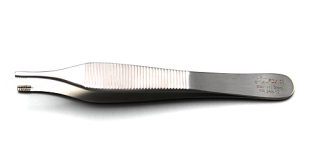Learn all about belly button pain and its infection. The official name of the belly button is the umbilicus. As a matter of fact, bleeding belly button is not a common issue. Hence, any bleeding or discharge coming from the belly button should be an indication of an infection. Mostly, bleeding navels are triggered by improper wound healing after a belly button piercing. Unhygienic instruments and careless post-piercing wound care are two most common reasons for a belly button infection. However, this issue does not come along with all piercing procedures. Proper wound care and kept-cleaned navels are the key to avoid bleeding belly button.
A navel called as well as belly button can be an innie-outie, or a combination of both. In most humans, navel is a dark, damp area of the body, which can be easily infested by fungus and bacteria. This body part is also passed through by body sweats which when trapped, can create a preferable site for the bacteria to grow
Technically, the belly button is a scar. While keeping this area clean is important in terms of prevention, there is no guarantee that the wound, cyst, etc., will heal on its own. Any current infection may spread inward to the abdomen or digestive tract. Instead of having one isolated problem, you may develop additional problems, such as difficulties in moving your bowels or urinating. Because of the belly button’s location, any damage to it can easily lead to dangerous complications throughout body.
Belly buttons are rarely an object of concern for most people. Many people do not clean their belly buttons, which can lead to a build-up of gunk, lint, dirt, and bacteria. In extreme cases, a dermatologist’s intervention may be required. Regular washing of your belly button is recommended to eliminate the bacteria that grow there due to sweat.
Seek professional intervention as soon as possible, even if it does not seem grave. Remember that the belly button should not be bleeding in the first place. Taken on its own, belly button bleeding is already a very serious condition. Do not wait for other symptoms to develop. The appearance of other symptoms, such as nausea or diarrhea, only means that you have allowed the underlying infection or condition to spread throughout your body.
Belly Button Pain, Bleeding, Infection
A belly button pain is something that should not be ignored especially if the cause is unknown. There are various reasons for the navel or the belly button to be in pain and among the reasons could be serious. The pain can be intermittent or it can be unswerving depending on the cause of the pain. Navel infection is generally caused by improperly healed open wound post-surgery or post-piercing. Infection may trigger smelly discharge, which may be similar to pus or water. Infection also cause small ruptures to the navel, which eventually cause blood leak. This is how bleeding is disclosed.
Belly Button Pain
The onset of belly button pain can be consistent or it can be sporadic. Pain in the belly button is often felt when stretching, bending or leaning forward although the pain is not that too intense. The pain felt is often just a discomfort instead of a true pain or an excruciating pain. The pain however, can be sharp for some and the incidence is quite alarming as the area of the belly button consist of so many organs around it.
Bleeding from Belly Button
Belly button bleeding has several causes, but the most common is the infection and fungal growth or as a result of injury, all this notwithstanding, this infection has an impact to a person’s health if they are treated early. Belly button discharge is a highly unusual condition. Any blood or discharge from the belly button will have a strong odor, which can be embarrassing.
Belly Button Pain Causes
Bleeding from bellybutton may be due to several different causes. Three of the most likely causes are infection, a complication from portal hypertension, or primary umbilical endometriosis. Some other causes are;
• Piercing
• Regular Touching
• Poor hygiene
• Appendicitis.
• Celiac Disease.
• Constipation.
• Colon Cancer.
• Crohn’s Disease.
• Diverticulitis.
• Irritable Bowel Syndrome.
• Mesenteric Artery Ischemia.
• Pyelonephritis.
• Ruptured Spleen.
• Umbilical Hernia.
• Wilm’s Tumor.
Belly Button Infection
Infection of the bellybutton is common. If you have piercings near your naval, or bellybutton, area you are at an increased risk of having belly button infection. Poor skin hygiene can also lead to an increased chance of infection. Infection is common in the bellybutton because the area is dark, warm, and moist. This contributes to bacterial growth, which can lead to an infection.
Belly Button Pain Treatment
The treatment of pain in the belly button depends on what caused the pain. Belly button pain from overstretching the body for example can be managed through cessation of stretching exercise until the pain has died down. Medications are also available to help relieve the pain and reduce inflammation if pain is caused by an ongoing inflammation. Ibuprofen or acetaminophen may be given depending on which medication the patient can tolerate or which the patient has no allergic reaction.
- Surgery is necessary if belly button pain is due to an impending appendicitis or if due to hernia.
- Belly button pain due to minor problems can be addressed with home remedies such as:
- Application of ice pack over the belly button will help relieve the pain. The coldness of the ice pack will help constrict the blood vessels thus reducing the pressure and relieving the pain.
- Frozen vegetables can also relieve pain by applying it over the belly button in case an ice pack is not available.
 Health & Care Information
Health & Care Information 


